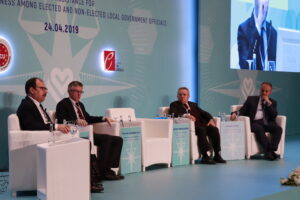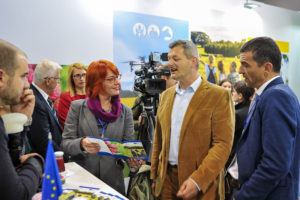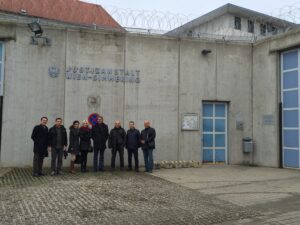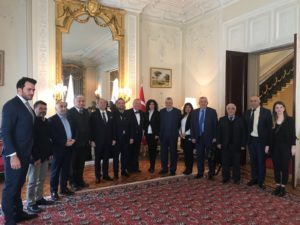
Technical Assistance for Prevention of Corruption and Promotion of Ethics
Despite the OECD’s assessment that Turkey has made significant progress since 2007 in its efforts to combat corruption, the issue continues to represent an obstacle to economic and social progress and, potentially, to greater integration with the EU. The overall objective of the project was to contribute to

Capacity Building for the Alignment with the Acquis in the areas of Agriculture, Rural Development, Food Safety, Veterinary and Phytosanitary Policy
This project improves the planning, legislative, and institutional capacity of Serbia’s Ministry of Agriculture , Forestry and Water Management part of the country’s preparations for EU membership. Project supports Serbia in the EU accession process through the preparation of the Negotiation Positions and drafting or amending the national

Technical Assistance for Border Enforcement of Intellectual Property Rights (IPR) for Modernization of Turkish Customs Administration VIII
It is essential to modernize customs legislation and practices in line with the EU standards for proper and effective implementation of the Union Customs Code. In this context, the purpose of the project was to improve the administrative capacity of the Turkish Customs Administration, raise awareness and increase

Technical Assistance for Improvement of Enforcement Services in Prisons (DEPAR)
There was a general recognition that standards and conditions in Turkish prisons needed to be improved and brought into line with international norms, particularly those operating in the EU in the context of closer EU-Turkey integration.

Improvement of Legislation, Control and Awareness in Food Safety, Animal Health and Welfare in Ukraine
The project aims to support the implementation of the Association Agreement’s provisions between the EU and Ukraine concerning food safety, animal health, and welfare.

Technical Assistance for Establishment of Rize Tea Research and Application Centre
Rize has the best reserves of tea in Turkey, however, the SMEs in the Tea region is not qualified enough to compete. Hence, the general purpose of the project was to increase the competitiveness of the tea sector concentrated in Rize and its surroundings. More specifically, it wanted

